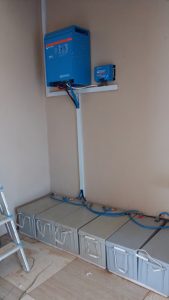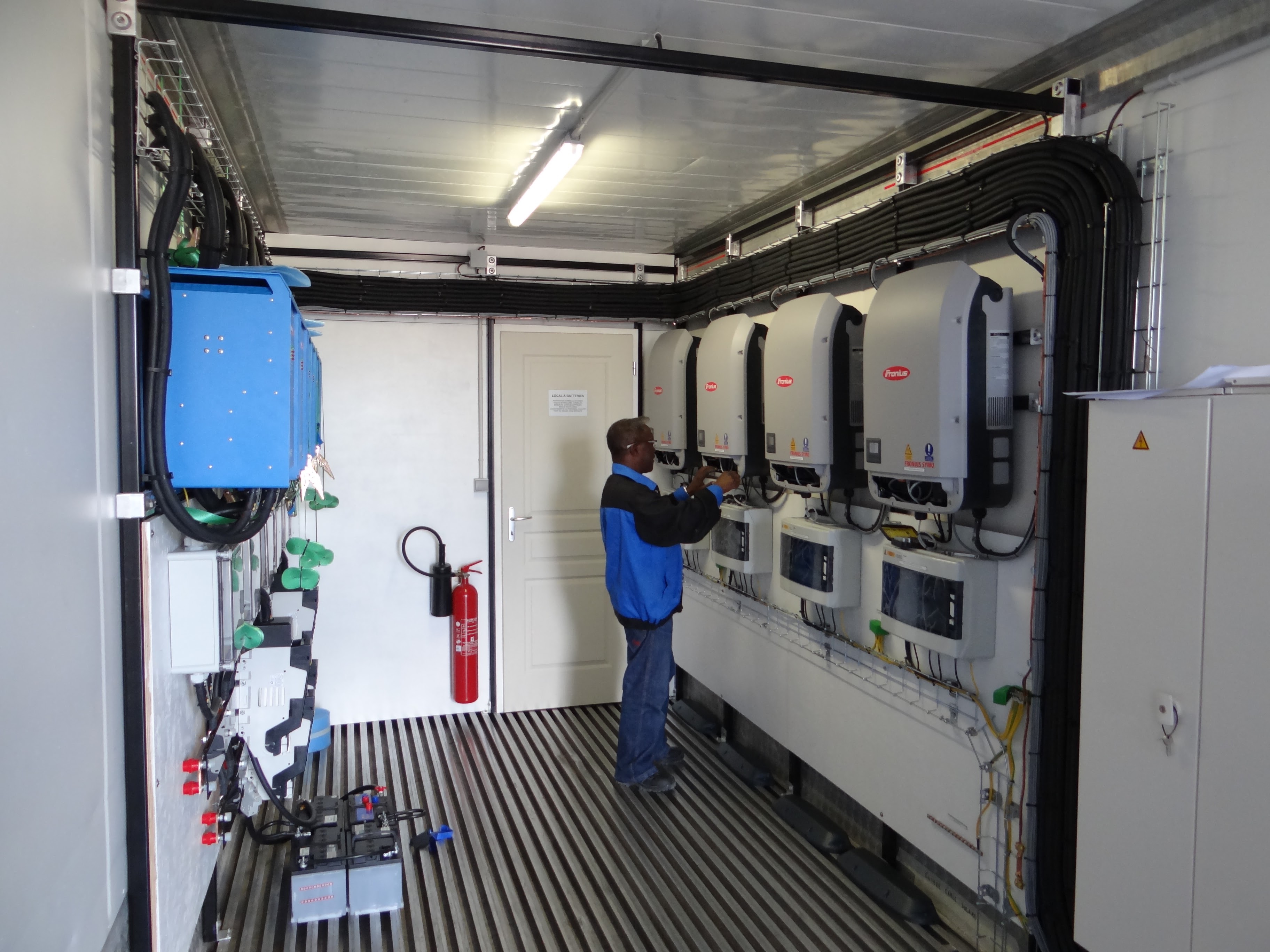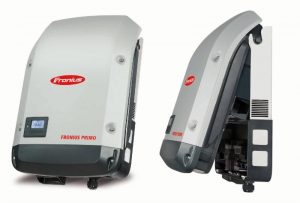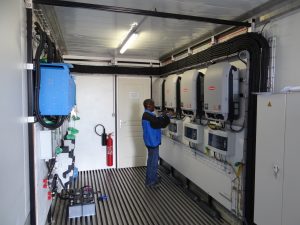Ghana:How Fronius saves businesses Ghc 24,000 per annum on electricity.The conversation was getting heated and it ended with the statement “Diesel Generators are cheaper than the Electricity Company of Ghana (E.C.G) and some businesses in Ghana run on generator power even when the grid is available”……………………..
The reality of Ghana’s power situation
This was what I learnt from a conversation I had in 2014 with an associate of mine who ran a medical practice in East Legon at the time.I was actually doubtful of his claims because of his political affiliation and therefore brushed these claims aside.
Whilst Ghana appears to have recovered, somewhat, from the power crisis, many businesses are, ironically, turning to generators which they find to be cheaper than the national grid. Fast forward to 2017 ,whilst running several power audits across Ghana ,I come across several businesses who run on diesel generator power 2-3 times weekly as a cost cutting strategy for electricity. Some of these business claim to be able to save up to 25% on power costs by this strategy alone.
With Ghana’s prepaid metering system, it’s easy to compare how much is spent on either generators or the national grid on weekly or even daily basis .The bare facts are that that solar has gotten cheaper today than it was years ago and with an average 5.5 hours of effective sunshine daily in Ghana, businesses should seriously consider quality Grid-tied solar power systems such as Fronius .With these solar power systems you don’t need to even worry about rising utility tariffs or fuel prices.

A grid-tie solar installation ,showing solar panels on the roof of a Guesthouse in Ghana
Most Ghana based business shy away from Solar power because of the perceived high initial costs. Grid-tied solar often has fewer upfront costs than an off-grid system. For one, it can cost less to install a grid-tied system because it does not require batteries, as off-grid does. For another, it’s more flexible, as you don’t necessarily have to install the number of panels you will need to produce all your energy needs right away. people choose grid-tied solar power systems when they know they could only afford a certain number of panels at a given time, so their goal is to lower their electricity bills—but not eliminate them entirely just yet.
Grid-Tie Research Findings

A fully installed 20Kw Fronius Grid-tied solar inverter in Accra-Ghana
Over time, you can always add more panels as you find the financial resources to do so.This solar power option is excellent for commercial operations that have a high power demand during daytime hours.Up to 65% percent of power demand for most offices in Ghana is for air-conditioning /cooling due to high daytime temperatures and humidity. Our research indicates that grid tied solar can be at least 45% cheaper than off grid solar power systems and you can save Ghc 24,000 per annum by the deployment of just 10kwp. We are able to calculate the savings because of the inbuilt monitoring systems in these intelligent devices built by Fronius BV of Austria.
Nocheski Solar is dedicated to using products that have a strong, unrivalled reputation for technical innovation, reliability, and build quality. Our products are widely considered to be the professional choice for independent electric power.You may call +233244270092 email for further information



 GRADE refers to the quality of solar cell used in the solar panel, and are categorized as A, B, C, or D. “Grade A” cells are the highest quality, in that they are tested to ensure there are no micro-cracks in the solar cell, and all the cells are of the same type. The quality diminishes for grade B, which may have micro cracks and not all cells are of the same type (they sometimes mix and match). Grades C and D are much worse quality with larger cracks and chips, and the cell mismatch is even worse since typical solar cell will be exposed to sunlight throughout its lifetime. Sunlight contains harmful ultraviolet (UV) light that deteriorates all materials, including solar cells. The tiny flaws in the material become worse after prolonged exposure to sunlight, and its power output reduces over time.As a grade A cell has the least flaws to start with, its deterioration will be the slowest.
GRADE refers to the quality of solar cell used in the solar panel, and are categorized as A, B, C, or D. “Grade A” cells are the highest quality, in that they are tested to ensure there are no micro-cracks in the solar cell, and all the cells are of the same type. The quality diminishes for grade B, which may have micro cracks and not all cells are of the same type (they sometimes mix and match). Grades C and D are much worse quality with larger cracks and chips, and the cell mismatch is even worse since typical solar cell will be exposed to sunlight throughout its lifetime. Sunlight contains harmful ultraviolet (UV) light that deteriorates all materials, including solar cells. The tiny flaws in the material become worse after prolonged exposure to sunlight, and its power output reduces over time.As a grade A cell has the least flaws to start with, its deterioration will be the slowest.













